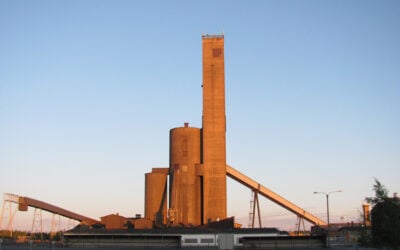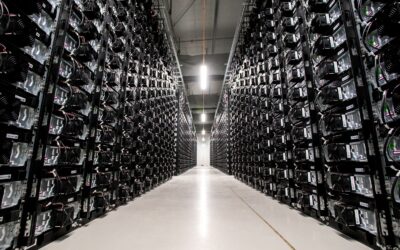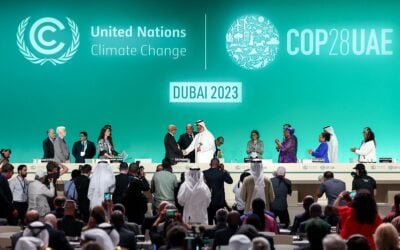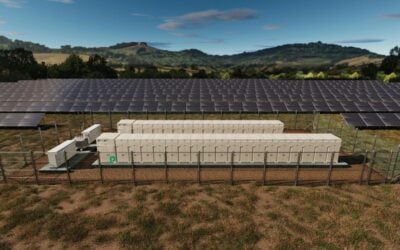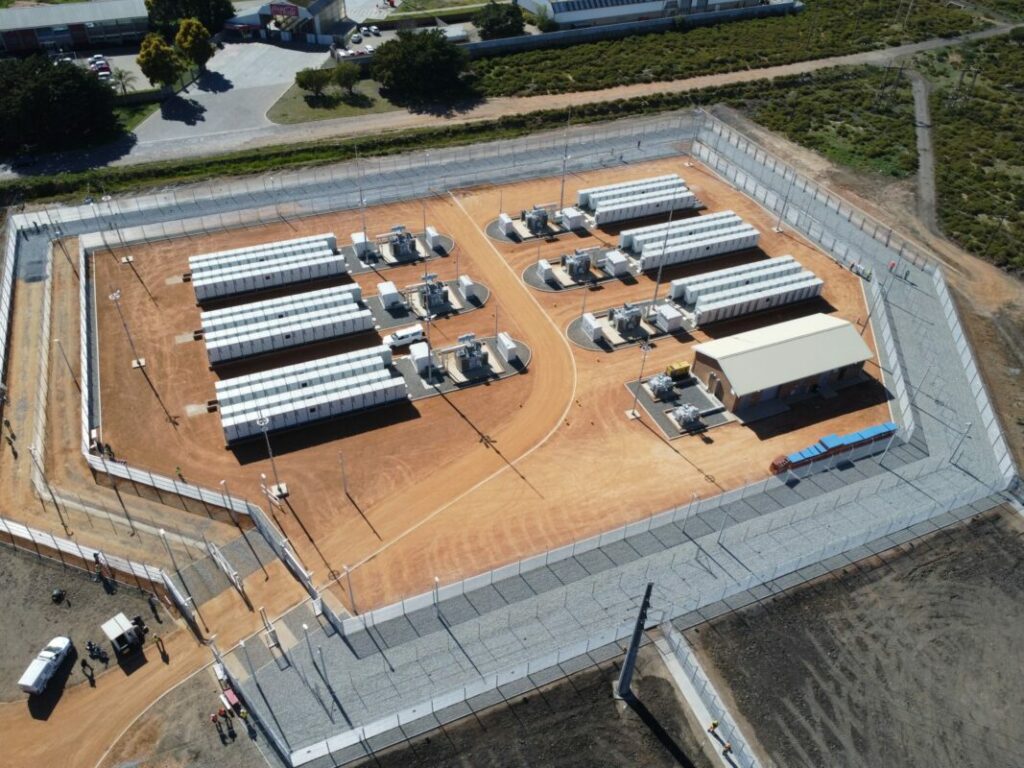
Eskom, the public utility company of South Africa, has inaugurated a 20MW/100MWh battery energy storage system (BESS) aimed at mitigating the challenging situation facing the country’s grid.
A celebration event was held yesterday, 9 November, for the 5-hour duration Hex BESS project in the Western Cape Province town of Worcester. The project gets its name from Eskom’s Hex substation to which it connects it to the grid, close to the Hex River.
Enjoy 12 months of exclusive analysis
- Regular insight and analysis of the industry’s biggest developments
- In-depth interviews with the industry’s leading figures
- Annual digital subscription to the PV Tech Power journal
- Discounts on Solar Media’s portfolio of events, in-person and virtual
Or continue reading this article for free
The project was one of a total eight projects representing 343MW/1,440MWh of battery storage resources selected by Eskom through a competitive tender in mid-2022, along with 60MW of solar PV, aimed at increasing the utility’s available capacity as outlined in its 2019 integrated resource plan (IRP).
The buildout of that portfolio is happening in two phases, with the Hex project among a total 199MW/833MWh of BESS and 2MW of solar PV plants being constructed in Phase 1.
Figures provided by Eskom and reported by Energy-Storage.news in December last year as the 8MW/32MWh Elanskop BESS, another Phase 1 project, began construction, put the total cost of the two phases at about ZAR11 billion (US$630 million). Funders include the African Development Bank, World Bank, New Development Bank and multilateral climate investing platform Clean Technology Fund (CTF).
Eskom’s application for a generation license for the facility was approved by the National Energy Regulator of South Africa (NERSA) in September 2022. Eskom will own the asset but project developers will carry out operations and maintenance (O&M) duties for a fixed period of five years.
It is understood that in addition to the lithium-ion battery technology which is used at the Hex project, redox flow batteries were also considered as an alternative, according to an environmental and social impact assessment report seen by Energy-Storage.news.
Two BESS technology providers were selected for Phase 1, South Korea’s Hyosung Heavy Industries and China’s Pinggao Group. Both Hex and Elandskap are Hyosung Heavy Industries projects, while among 250 people to have worked on Hex were various local subcontractors, Eskom said in an announcement on business networking site LinkedIn.
Batteries to aid utility and grid operator’s challenging situation
South Africa’s electricity system faces difficult circumstances, with frequent load-shedding events leaving homes and business without power. At the time the 2019 IRP was filed, Eskom’s aim in deploying the batteries was to replace the capacity of retiring thermal generators, but since then it has faced maintenance issues and disruption to the operation of its existing fleet.
A report published earlier this year by the International Institute for Sustainable Development (IISD) recommended that concerted efforts should be made at national and municipal level to promote grid-scale energy storage to help counter those problems, alongside the deployment of renewables.
Eskom’s problems have worsened still since it held the 1,440MWh procurement, with a rash of recent and ongoing, unplanned outages at fossil fuel plants. In April Cape Town’s Mayor said the city would look to deploy a large-scale solar-plus-storage plant in order to reduce its reliance on Eskom’s networks.
Shortly after that announcement the utility itself instructed a rural electricity supplier that it could use battery storage to mitigate the impacts of frequent load-shedding in the town of Frankfort – although the supplier, Rural Free State, was told by Eskom that it would be “unacceptable” for the town to generate its own power using solar PV as part of those measures.
Another procurement for 513MW/2,000MWh of battery storage is also underway to improve Eskom’s situation, launched by the Department of Mineral Resources and Energy earlier this year. The bidding window for that procurement closed in July.

